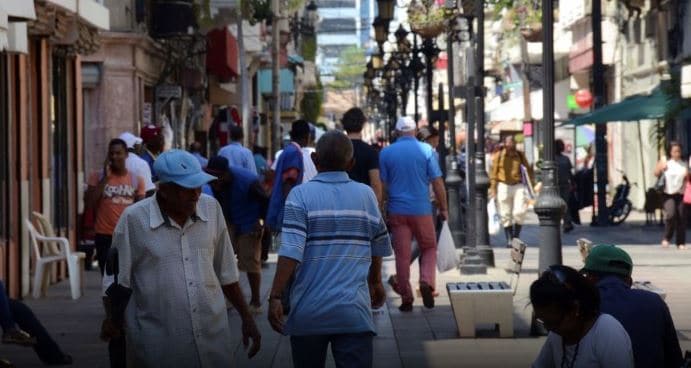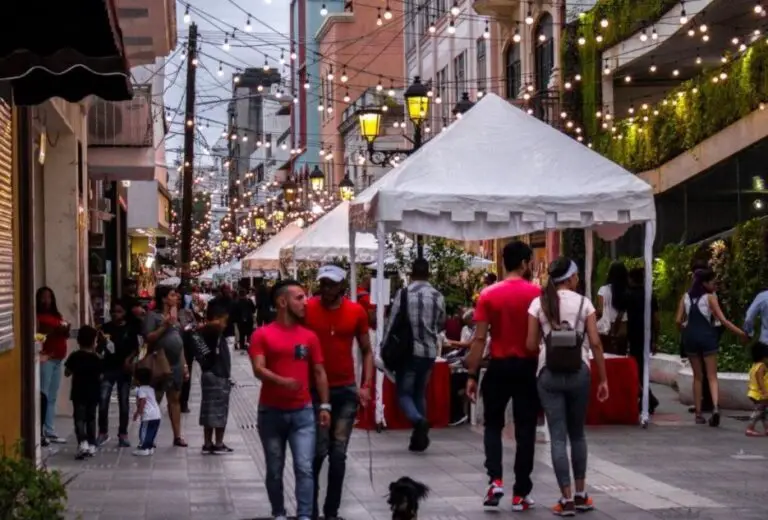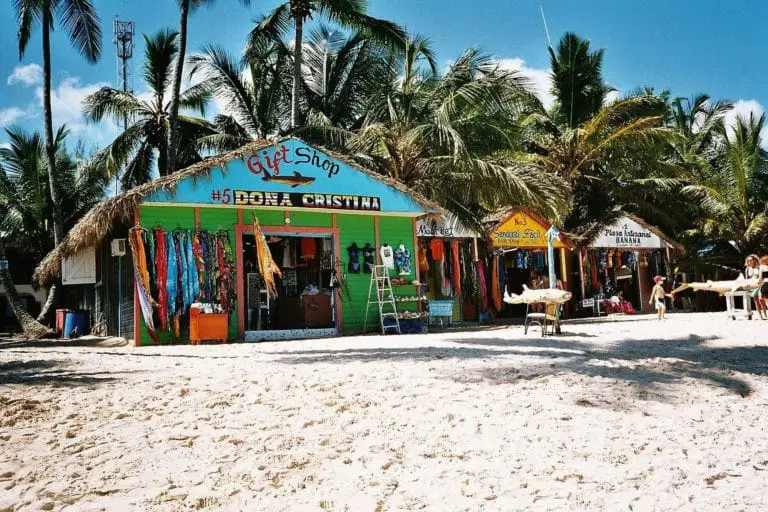4 Main Cultural Differences Between the Dominican Republic and the United States

Contents
4 Main Cultural Differences Between the Dominican Republic and the United States
I must admit that this will be a very subjective topic as it is largely based on my point of view, although it has a lot of validity due to my decades of experience living in the Dominican Republic and my close contact with the U.S. culture.
I have always found the culture of the United States fascinating, and in comparison with the Dominican Culture, in spite of having certain similarities in some aspects, there is a great contrast.
This will be the topic that I would like to discuss, the existing contrasts between the culture of the Dominican Republic and the culture of the United States. In particular, on the most notable differences between the two cultures.
But focusing mostly on the Dominican cultural side (so that U.S. readers can better understand).
Needless to say, the United States is a “rich” country and the Dominican Republic is “not so rich”, so culturally the most notable and important differences are rooted in socio-economic factors that influence the behavior of the citizens of these countries.
Also, keep in mind that the United States is a confederation of states as the name implies, and each state may have different cultural aspects, just as the Dominican Republic contains a super diverse culture.
For the purposes of this topic, we will take a “middle ground” of the common population of both countries.
1-About the food
Food is always the most relevant cultural aspect when comparing cultures, especially when making travel decisions.
Dominican food especially, not that it is so super-diverse compared to other cultures, rice is the staple of everyday Dominican food.
It is so much rice that we consume that we almost look like Orientals, rice is mostly accompanied by beans, meat and salad, this combination makes up what is known as the typical Dominican dish.
“If I don’t eat rice during the day, I feel like I haven’t eaten anything” (phrase of any common Dominican).
The issue with this is that Dominican food can be quite spicy, and very tasty, but so much spice could fall heavy on the stomach of many people from the United States.
The other thing is, if a U.S. person wanted to try Dominican street food, they would most likely get sick.
A doctor friend of mine once told me that Dominicans’ stomachs are already “cured” from eating street food here.
In fact, when I was a Dominican baseball fan, I realized something, for the tournament they always bring every year players from the United States and the main reason why these players left the country early, was because of stomach problems.
For the record, I am referring to Dominican street food, otherwise, the food in the Dominican Republic is exquisite.
Besides, you can find fast-food restaurants on any street corner, the same fast-food restaurant you find in the United States, so the food here would not be a problem.
On the positive side, the food in the villages in the Dominican Republic is very healthy and natural, I don’t think I have ever in my life seen people from the interior of the DR who are obese.
These people do not eat processed foods, there are no stores selling pizzas or hamburgers in the middle of a DR town, these people have a tradition of eating what they harvest.
The people in the villages of the Dominican Republic eat very well, everything natural, food, milk, natural cheese, they are very strong people both physically and spiritually.
2-The “Dominican Time”
In the Dominican Republic, If you want to meet with a Dominican at 3:00 p.m., you should schedule the meeting for 2:00 p.m., just to “make sure” he/she will be on time., this is called “la hora Dominicana” (Dominican time).
Again, it’s not right to generalize, but speaking on average and a bit sarcastically…
Maybe the previous example is sarcasm, but I really know many people who do this, here in the Dominican Republic there is a bad reputation of unpunctuality, maybe it is due to the more relaxed and uncomplicated lifestyle that people lead.
“Sorry I’m late, there was a lot of traffic” (very common Dominican phrase when arriving to a personal meeting).
Obviously, not everyone is like that, but as I said at the beginning I was going to take the average of the population, and although I obviously don’t have statistical data, no one will argue with the reputation of unpunctuality in the Dominican Republic.
Contrary to the United States, where time is valued more because most people live a life that is too fast, business, meetings, work, everything is fast.
People in the DR take things easy, and more relaxed, life pace is slower and calmer, if you are from the US, don’t try to get things done quickly in the DR, and don’t expect people to be extremely punctual for things.
In addition, people from the United States who come on vacation to the Dominican Republic, often at a sacrifice, also value their time very highly.
3-Laws in the Dominican Republic
I’m not sure if the laws fall into the category of culture, but really the aspect of the laws of both countries is one of the most remarkable and outstanding.
Perhaps because of the rebellious nature, or because Dominicans spent decades in the past under a dictatorship government, most Dominicans do not like to have things “imposed” on them, but this is taken to the extreme sometimes.
One of the favorite responses of people in the DR, when they are complained about something is “I do whatever I want” (for example, if they are causing a lot of noise with music loudspeakers, or if they are driving recklessly) this is reflected in their behavior.
I have heard, over and over again, that a Dominican citizen going to the United States behaves in a totally different way “they walk the straight line”.
This is because in the Dominican Republic laws are very easy to break without consequences, and therefore laws are broken frequently.
This is especially evident in urban traffic, if I start to dwell on this topic I would have to write a 10,000-word topic.
“The Dominican Republic is one of the countries in the world with more traffic accidents, most of them caused by motorcyclists”.
The laws in the Dominican Republic (when they exist) are extremely weak compared to the laws in the United States.
This is something that might really seem surprising to a person who does not reside in the Dominican Republic.
On the bright side, in the Dominican Republic life can be much more flexible and bearable because the laws are not so rigid.
Many laws and permits that exist in the United States do not exist in the Dominican Republic, so things can be much more viable and fluid here in the DR.
4-El “Tigueraje Dominicano” or hustle culture
This word might seem somewhat meaningless, but I would actually venture to say that it is the most fundamental aspect when it comes to differentiating the Dominican culture from any other culture in the world.
“Tigueraje” is derived from the word “Tigre”, this is like a denomination in the Dominicans that denotes a “cunning man, who gets what he wants through his mental ability”.
And in reality, the original concept of a “Dominican man tiguere”, refers to a man with a code of honor, and brotherhood, with the highest level of street smarts, who protects the most defenseless and does not tolerate abuse.
But this concept has lost its essence over time.
The traditional Dominican man is brave and hardworking, the word “tiguere” has acquired a somewhat negative connotation because, in reality, the “tigueraje culture” includes many dishonest acts.
Such as cheating, and abusing the trust of others. Or wanting to take advantage of any situation without respecting order or justice.
In the US this could be called “street smarts”, you must not be too noble, confident, and ignorant when dealing with people in the DR, you must have a lot of “street smarts”.
Make no mistake, the “tigueraje” culture does not only apply to men in DR but also to women.
Hustle culture in the US is defined as working hard and long hours to make a decent living, in the DR hustle culture is about survive by in any way possible.
I really didn’t want to turn this topic into “something I wanted to get off my chest”, but to make a good topic and as real as possible about a cultural comparison, this is something I couldn’t leave out.
Actually, as a Dominican, I don’t feel good being so critical of my people.
5-Education and Organization
There is a saying “No one is a prophet in his own land”.
And really in the US, the “gringos” have treated me with more education and respect than in my own country, and that hurts me to admit it.
Having said that, if you are a foreigner, you will be treated very well in DR, but don’t expect much education and respect.
There is an abysmal difference between the education and organization shown in the United States in relation to the Dominican Republic.
Sometimes you have to put yourself in the other person’s shoes, in the Dominican Republic, you will have to do this many times to be able to understand the aggressive behavior that some people can show.
Yes, now I’ve got something off my chest…
Having said that, people in the DR in general are more friendly and warm, willing to help strangers, caring, and welcoming.
What other cultural differences are important?
Regarding holidays, the Dominican Republic does not celebrate Thanksgiving Day, it seems to me that Thanksgiving is the main holiday in the United States.
Halloween is also not celebrated, although this day can be reflected in many commercial and entertainment environments, with decorations and costumes.
Easter is a sacred time and most Dominicans do not work from Wednesday until Monday of the following week.
As for religion, most Dominicans are Catholics, while in the United States, most are Christians, although Catholics can also be considered Christians, the difference is that Catholics respect and worship the Virgin Mary very much.
In fact, the Virgin of Altagracia is considered the “patron saint” of the Dominican people and has a feast day as well.
There are also notable differences in music, with merengue and bachata being the most traditional rhythms of the Dominican Republic.
As for sports, the only notable difference is that American soccer is not played or practiced in the Dominican Republic.







